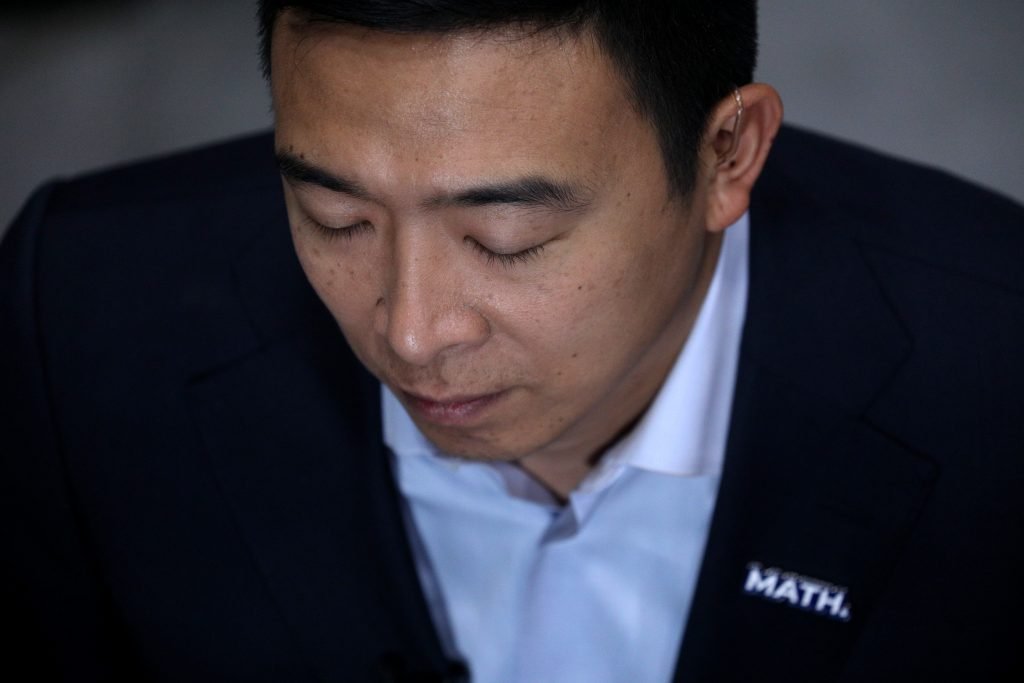
America doesn’t need more zero-sum thinking. That cramped
mindset already infects US trade policy. Keep it away from technology.
Unfortunately, dark-house Democratic presidential candidate Andrew Yang too
often suggests a “you win, I lose” perspective.
Yang, a lawyer and test-prep company executive, is so worried that robots will take all the jobs — causing mass employment and mass riots — that he ASAP wants a universal basic income for all American adults. Silicon-based lifeforms win, carbon-based lifeforms lose. And in Thursday night’s debate, Yang claimed “we’re in the process of potentially losing the AI arms race to China right now” because companies there get state subsidies and have more data. And we all know, as Yang added, that “we’re living in a world where data is the new oil.”

So a few things here. For starters, data is really nothing
like oil. Among the many differences is that oil is rivalrous, while data is
non-rivalrous. When oil is consumed, it’s gone. But when a company uses your
data to better target an ad, your data is still there to be used again for more
free services. Data isn’t zero sum.
Likewise, American and Chinese advances in artificial intelligence — which isn’t just one thing — and 5G mobile communications are really nothing like races, although the metaphor is tempting. They aren’t contests of set time and duration where at the end a champion gets crowned and a loser consoled. Unless China is quarantined or chooses to become North Korea, its AI efforts and those of America and Europe will remain interconnected and interdependent to some degree as they continue to evolve. Breakthroughs and advances in one nation can be used by others. That’s how science works. At least it does with AI. As Andreessen Horowitz analyst Benedict Evans told me earlier this year in a podcast regarding machine learning:
The interesting thing about machine learning, partly because it grew out of an academic background, is that almost everything gets published and made open source immediately. As soon as Google works out how to do something, they publish it. It’s not sort of staying inside the company as proprietary information in the way making blue light LEDs or making lasers or making better hard disks or memory chips was kind of secret and proprietary. Everything gets published, which, of course, poses a bunch of interesting questions around things like export regulation. Are you going to tell people that they can’t export a mathematical formula?
Likewise, Harvard’s Amar Bhidé argues in “The Venturesome Economy,” that “the expansion of the global supply of cutting-edge research, regardless of where it originates, is a good thing.” Moreover, being first may not matter much. Evans, again: “Japan was ‘first’ to 3G and it didn’t matter. I don’t even remember who ‘won’ 4G.” Inventions may generate great value, but the inventors capture only a mere fraction.
Not that we should do nothing. America must be the world’s dominant technological power, especially in a world where its main competitor isn’t a liberal democracy. But the worst thing America could do is panic and try to replicate the Chinese Way with a clumsy, top-down industrial policy — especially one that ignores America’s historical innovation strengths tied to entrepreneurship, immigration, and basic research investment.
The post Zero-sum thinking is no way to compete with China’s tech progress appeared first on American Enterprise Institute – AEI.
